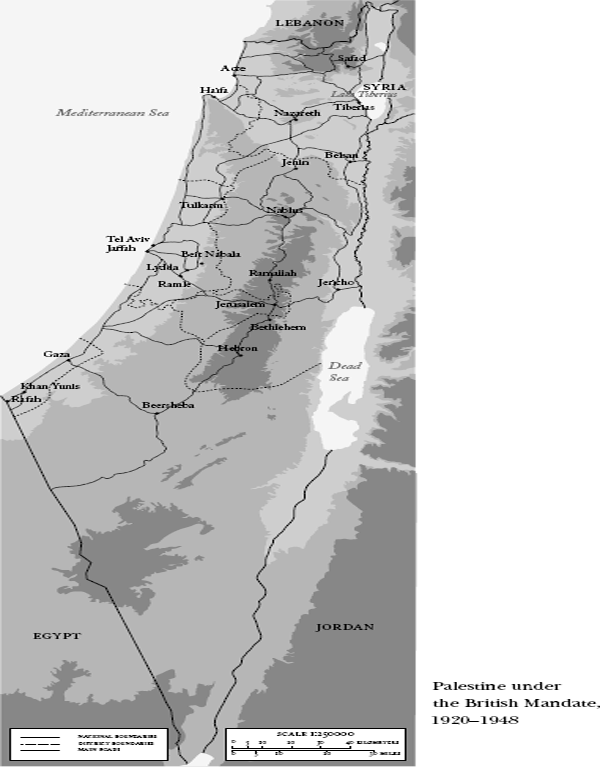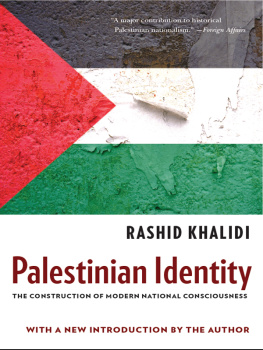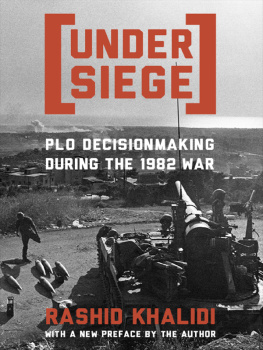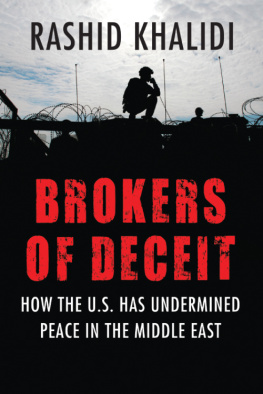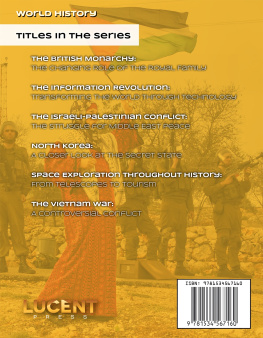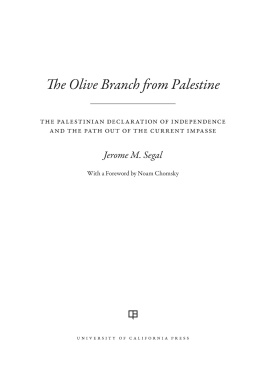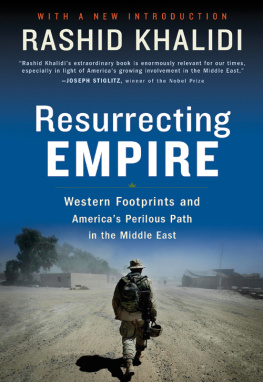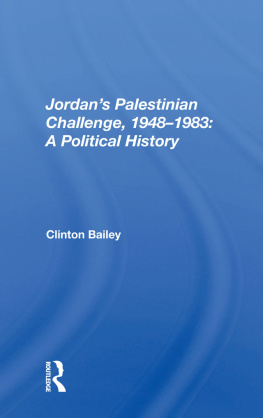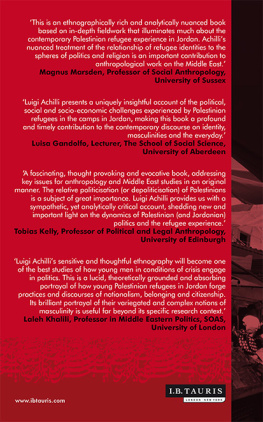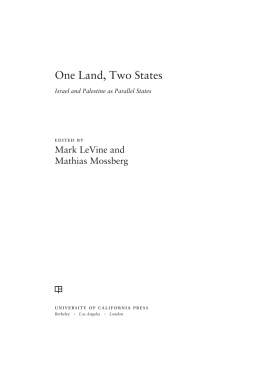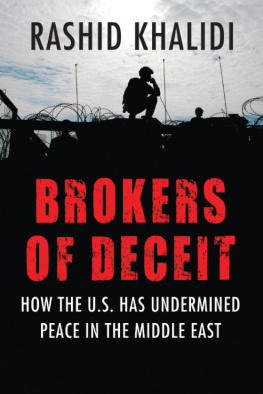PALESTINIAN IDENTITY
PALESTINIAN
IDENTITY
The Construction of Modern National Consciousness
RASHID KHALIDI
C OLUMBIA U NIVERSITY P RESS N EW Y ORK
Columbia University Press
Publishers Since 1893
New York Chichester, West Sussex
cup.columbia.edu
Copyright 1997 Columbia University Press;
introduction copyright 2010 Columbia University Press
All rights reserved
E-ISBN 978-0-231-52174-1
Library of Congress Cataloging-in-Publication Data
Khalidi, Rashid.
Palestinian identity : the construction of modern national consciousness /
Rashid Khalidi.
p. cm.
Includes bibliographical references and index.
Reprint of work originally published in 1997. New introdution by the author.
ISBN 978-0-231-15074-3 (cloth : alk. paper)
ISBN 978-0-231-15075-0 (pbk. : alk. paper) ISBN 978-0-231-52174-1 (e-book)
1. Palestinian ArabsIsraelEthnic identity. 2. Arab-Israeli conflict.
3. Palestinian ArabsJerusalem. I. Title
DS113.7.K53 2010
305.892740569442dc22 2009032948
A Columbia University Press E-book.
CUP would be pleased to hear about your reading experience with this e-book at .
References to Internet Web sites (URLs) were accurate at the time of writing. Neither the author nor Columbia University Press is responsible for URLs that may have expired or changed since the manuscript was prepared.
CONTENTS
I
Like most projects of this size, this book has gone through several metamorphoses. The initial idea, which I developed about eight years ago, was for a text that would reinterpret and rework the received versions of the history of Palestine over perhaps the past two centuries. But for several reasons I eventually saw that such a project was unfeasible: it would have involved a huge amount of research over many years and would have culminated in a massive volume (or volumes)an unappealing prospect. I felt that there was a need for a book that would be accessible to a broad circle of readers beyond a specialist audience, and would be available soon, in order to meet the widespread current interest in the subject of the Palestinians. In addition, I found that the existing specialized works on Palestinian history covered some topics well, and that I had nothing original to say regarding certain other aspects of Palestinian history. The idea of writing a comprehensive history of Palestine thus made increasingly little sense to me.
In the next phase, my involvement in the restoration of the Khalidi family library in Jerusalem gradually led me to the idea of an intellectual history of Jerusalem over the past century or so. This project was the focus of a twelve-month serial Fulbright grant to do research in Jerusalem over three years, from 1991 until 1993. While in Jerusalem over these three extended summers, I did much of the research for this book, and once again modified this project. In the end, I broadened its scope from Jerusalem to the entirety of Palestine, and shifted its focus from general intellectual history to a study of the emergence of Palestinian identity. I narrowed the focus because I felt that the issue of identity was perhaps the most important problem of Palestinian history which needed to be explained to both a general and an academic audience. If one takes identity as the answer to the question, Who are you? it is clear that the response of the inhabitants of Palestine has changed considerably over time. I sought to explain the reasons for that change.
When I first conceived of this project in its present form, it involved studying Palestinian national identity in some detail from its beginnings in the late nineteenth century until the present day. But as my research progressed, the conclusions which emerged from it, as well as my circumstances from 1991 until 1993, brought me to limit its scope even further. During this three-year period, in addition to extensive summer research and work on the restoration of the family library in Jerusalem, I continued with my teaching and other full-time duties at the University of Chicago. But beyond that, in a moment of incaution during my first stay in Jerusalem during the summer of 1991, I had agreed to the request of Faisal al-Husayni that, if the Palestinians became involved in negotiations with Israel (negotiations whose format and participants were at that time being determined in intensive shuttle diplomacy with all the parties concerned by U.S. Secretary of State James Baker) I would serve as an adviser to the Palestinian delegation.
At the time, I had no reason to assume that Baker would have any more success than his many predecessors, all of whom had failed to get the Palestinians and Israelis to sit around the same negotiating table. I felt especially secure in this assumption since the Israeli government then headed by Yitzhaq Shamir was deeply opposed to such a prospect. I thus did not give much thought to my agreement to Faysal al-Husaynis proposition, until late one night on the eve of the sudden convocation of the Madrid conference, I received a call from PLO officials in Tunis asking me to confirm that I was indeed going to Madrid, since the names of the delegation and its advisers had to be presented to Secretary Bakers assistants that very night.
I thereafter served as one of several advisers to the Palestinian delegation at the Madrid conference in OctoberNovember 1991, and participated in part of each of the ten Palestinian-Israeli bilateral negotiating sessions in Washington which continued until June 1993. These negotiations generally went on for a few intense weeks of nonstop work, followed by many weeks or months of recess. I did not participate in the entirety of every round of negotiations, and obtained welcome respite during the often lengthy breaks between them. Nevertheless, my colleagues and I on the Palestinian delegation worked extremely hard while the talks were in session, and the overlap between these negotiations and my research, teaching, and other duties was naturally stressful and often frustrating. It undoubtedly limited the amount of research and writing on this project that I was able to undertake.
However, my involvement in the negotiations did have some positive results for my research. Being in Madrid, Washington, and Jerusalem over these three years watching Palestinian national identity slowly but inexorably become embodied in concrete formhowever unsatisfactory this form may have seemed to some at the time or laterconvinced me of the centrality of the topic of the book I was working on. It also convinced me that I should not try to bring my narrative down to the present day, since it would be difficult to obtain the perspective necessary for writing history, given the speed with which the circumstances affecting Palestinian national identity were evolving.
At the same time, being in the midst of such momentous events made it clearer to me than ever before how rapidly views of self and other, of history, and of time and space, could shift in situations of extreme political stress, which could be seen as watersheds in terms of identity. I had already witnessed such swift changes in similar situations while living in Lebanon from the early 1970s until 1983, and had observed that constructs of identity and of political preference, and understandings of history, which appeared long-lasting and persistent in certain circumstances, could crumble or evolve almost overnight.
My earliest research, started in 1970, explored the first stirrings of Arab nationalism in Syria, Lebanon, and Palestine in the years before World War I..
